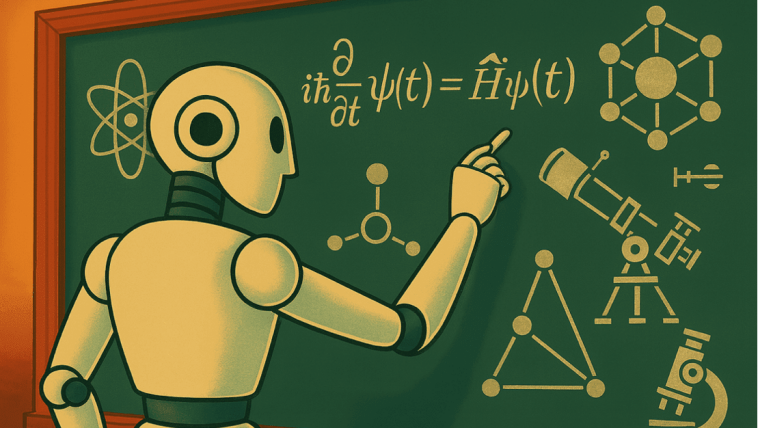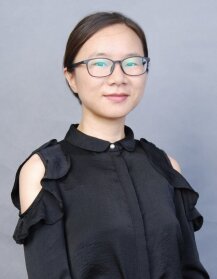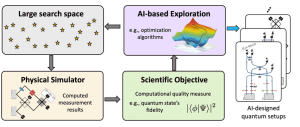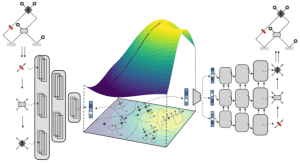
Intelligence Meets Physics to Accelerate Discovery
Our interdisciplinary team works at the intersection of artificial intelligence and quantum physics. We explore how AI can automate and augment scientific discovery by developing intelligent systems for automated experiment design that create new physical experiments and uncover research ideas that might otherwise be missed. More broadly, we envision creative systems that think and act like scientists, capturing the essence of human reasoning, curiosity, and exploration.
We are enthusiastic about developing AI methods that accelerate discovery across theory and experiment, and about exploring how physical principles can inspire new forms of machine intelligence. The goal is to unlock new capabilities in quantum science and technology, build AI systems that advance scientific creativity, and inspire scientists to ask deeper questions, pushing the boundaries of what we know.
Research areas
-
AI-Inspired Quantum Experiments
AI-driven discovery of new quantum experiments
Image: Xuemei GuTraditionally, designing quantum experiments has relied on human intuition, creativity, and deep mathematical expertise. However, the counterintuitive nature of quantum mechanics and the vast combinatorial space of potential configurations make this approach slow and extremely challenging. Artificial intelligence is now transforming how we navigate this search space and discover new possibilities in quantum physics. We developed PyTheus, an open-source digital discovery framework that autonomously generates new quantum experiments (Quantum 7, 1204 (2023)). PyTheus integrates a physical simulator using graph-based representations to model diverse optical components and experimental setups that can be implemented in real laboratories (Proc. Natl. Acad. Sci. U.S.A. 116 (10) 4147-4155 (2019)). We have applied this framework to discover highly entangled quantum states, measurement schemes, quantum communication protocols, and multi-particle quantum gates. Our goal is to develop high-performance physics simulators with modern AI and machine learning techniques to explore the large experimental design space and discover new ideas in quantum science.
-
AI-Inspired Research Ideas and Collaboration
Earlier AI-driven experimental design relied on simulators and optimization algorithms but lacked the accumulated knowledge that human researchers have discovered over decades. This limitation led us to explore how AI systems can effectively leverage existing literature to accelerate discovery. We built a large-scale semantic knowledge graph from 92+ million scientific papers to capture evolving scientific knowledge and developed machine learning models that forecast future research directions and identify high-impact, unexplored ideas (MLST 6, 025041 (2025); MLST 6, 015029 (2024)). But how compelling are AI-generated ideas, and how can we improve their quality? To address this, we developed SciMuse, which combines large knowledge graphs with large language models to generate personalized, interdisciplinary research suggestions (arXiv:2405.17044 (2024)). In a large-scale human evaluation, 110 research group leaders across 54 Max Planck Institutes reviewed over 4,400 AI-generated personalized ideas, with nearly 25% receiving high-interest ratings. Our goal is to create AI systems to generate interesting new research ideas and inspire unexpected interdisciplinary collaborations.
-
Interpretable AI for Quantum Science
Experiment design via interpretable deep learning
Image: Xuemei GuNeural networks and generative models are increasingly used to accelerate scientific discovery, but their decision-making processes often remain black-box. We explore methods that align learned representations with physical insight, building models whose internal structure is comprehensible, manipulable, and scientifically meaningful. For example, by adapting a quantum optics variational autoencoder, one can interpret latent variables as encoding physically relevant transformations and then generate experiments via latent navigation (Nat Mach Intell 4, 544–554 (2022)). We also employ deep dreaming techniques to design quantum experiments and show how trained networks conceptualize quantum systems and reveal their decision-making pathways (MLST 5, 015029 (2024)). Our goal is to build interpretable AI systems that not only automate discovery but also produce designs and solutions in forms that scientists can understand.
-
Quantum Information Science
Entanglement and nonlocality in quantum mechanics challenge classical intuition while opening new possibilities for information processing. We explore how multipartite entanglement and quantum operations serve as resources for computation, communication, and metrology. For example, by investigating nonlocal correlations in complex network scenarios, one can show how such correlations can be certified in a device-independent manner. Our goal is to advance both the foundational understanding of quantum theory and its practical realization in future quantum technologies.
Xuemei Gu, Dr


